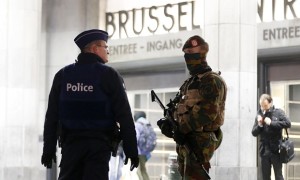By Virginia Villa
At least 30 people were killed Tuesday morning during a series of terrorist attacks in Brussels, Belgium. ISIS is claiming responsibility for the attacks, which occurred in an airport terminal at Brussels Airport and a subway station in the area. The attacks also forced the evacuation of a nuclear plant in Brussels, when officials began fearing the possibility of more attacks.
Belgium has been on high alert since the Paris attacks last November, but the country was evidently unable to anticipate the attacks that occurred this morning. As of now, over 200 people were wounded as a result of the attacks, which are said to have been suicide bombings.
These attacks come only days after the capture of the surviving ISIS member believed to be responsible for the Paris attacks, Salah Abdeslam. These most recent attacks caused French officials to respond by arming their borders even more heavily in case of another potential assault.
Though Belgium is responding swiftly to the attacks, the nation remains incredibly vulnerable to the threat of jihadist extremism. The state is currently in lockdown, as the government continues to struggle with counterterrorism operations.
President Obama, who is in Cuba this week, said that these attacks make even more clear the necessity for states to unite in the fight against terrorism. Though this fight must and will continue, it is important to consider how states can combat violence in non-aggressive ways as well. There needs to be greater education across the western world about the differences between Islam as a whole and jihadism. A greater understanding between non-Muslims and Muslims alike may promote a reform movement over a fundamentalist one, which could aid in the reduction of jihadist attacks. The turmoil that is occurring in states that are most vulnerable to terrorist attacks is a clear sign that something more than military action needs to be done.
What is unclear at this point is how the western world will respond to these latest attacks. Anger, confusion, and mourning of those lost in the attacks will no doubt drive much of the political conversation that will occur in the coming days. Whether or not the world responds as it has responded in the past, or looks for new ways to mitigate the violence is key in preventing further bloodshed.

